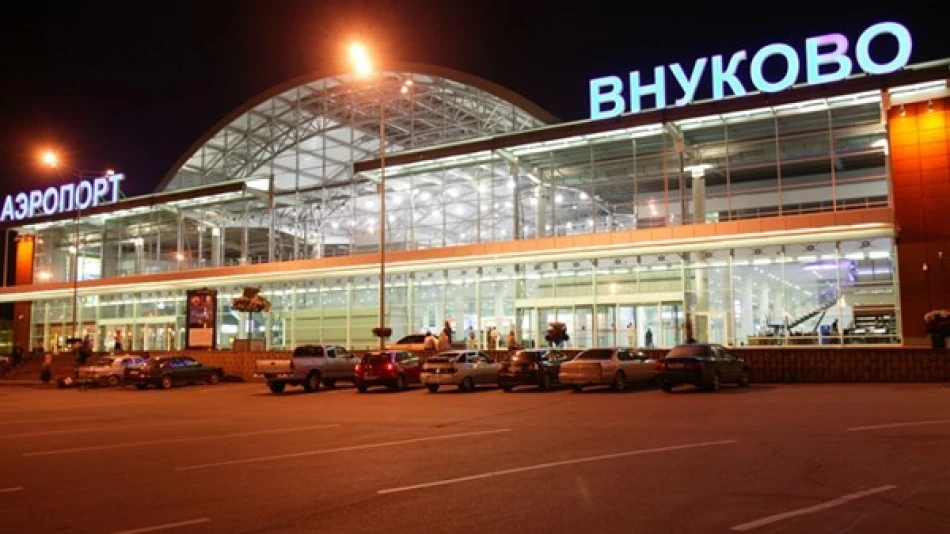
Moscow's Busiest Airport Suspends Flights, Causing Travel Disruptions
Moscow's Vnukovo Airport Suspends Flights After Drone Interception Highlights Russia's Aviation Vulnerability
Russia's Vnukovo International Airport halted all arrivals and departures Saturday following the interception of a drone targeting Moscow, underscoring how the ongoing conflict in Ukraine continues to disrupt civilian aviation and expose security gaps in Russia's capital. The incident marks another escalation in drone warfare that increasingly threatens critical infrastructure far from traditional battlefields.
Air Defense Systems Intercept Drone Over Moscow
Moscow Mayor Sergei Sobyanin confirmed that air defense systems successfully shot down an unmanned aerial vehicle approaching the Russian capital. Emergency teams were dispatched to the debris site to secure the area and assess any damage.
Russia's aviation watchdog, Rosaviatsia, announced the temporary suspension of flights at Vnukovo International Airport as a precautionary measure to ensure airspace safety. The airport serves as one of Moscow's three major aviation hubs alongside Domodedovo and Sheremetyevo airports.
Growing Pattern of Drone Attacks on Russian Territory
This latest incident represents part of an escalating pattern of drone strikes targeting Russian territory since the Ukraine conflict began. Unlike traditional warfare, these attacks demonstrate how relatively inexpensive unmanned systems can disrupt major economic centers and critical infrastructure hundreds of miles from active combat zones.
The targeting of Moscow specifically carries symbolic weight, as previous drone incidents have primarily affected border regions or military installations. Attacks on the capital challenge Russia's narrative of controlling the conflict's scope and protecting its heartland from retaliation.
Aviation Industry Under Pressure
Russian aviation has faced mounting challenges since international sanctions severely restricted aircraft maintenance, spare parts, and insurance coverage. Airport closures due to security threats add another layer of operational complexity for airlines already struggling with limited route options and aging fleets.
The incident highlights a broader vulnerability facing aviation infrastructure worldwide as drone technology becomes more accessible and sophisticated. Unlike traditional aircraft, small drones can evade conventional radar systems and approach airports from unexpected angles, forcing authorities to develop new detection and response protocols.
Strategic Implications for Moscow's Defense Posture
The successful interception demonstrates that Moscow has maintained functional air defense capabilities around the capital, likely including advanced surface-to-air missile systems and electronic warfare equipment designed to counter drone threats. However, the fact that hostile aircraft continue reaching Moscow's vicinity suggests ongoing challenges in early detection and prevention.
For international observers, these incidents provide insights into both the effectiveness of Russia's air defense network and the evolving tactics of its adversaries. The frequency and boldness of such attacks may influence Russia's military resource allocation, potentially drawing defensive assets away from other strategic locations.
As drone warfare continues evolving, airports worldwide may need to invest in specialized counter-drone technologies and revised security protocols, transforming aviation security in ways comparable to post-9/11 changes in airport screening procedures.
Most Viewed News

 Layla Al Mansoori
Layla Al Mansoori






